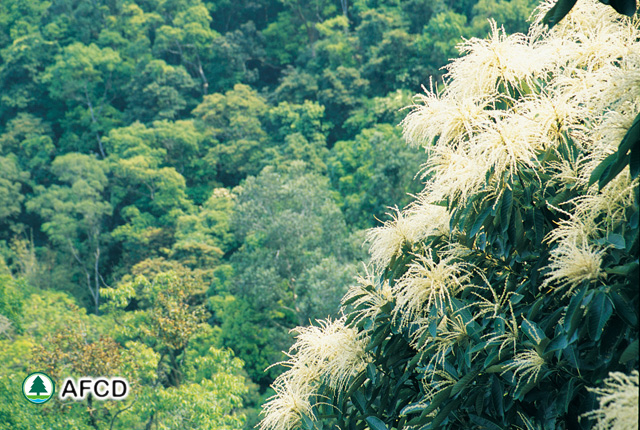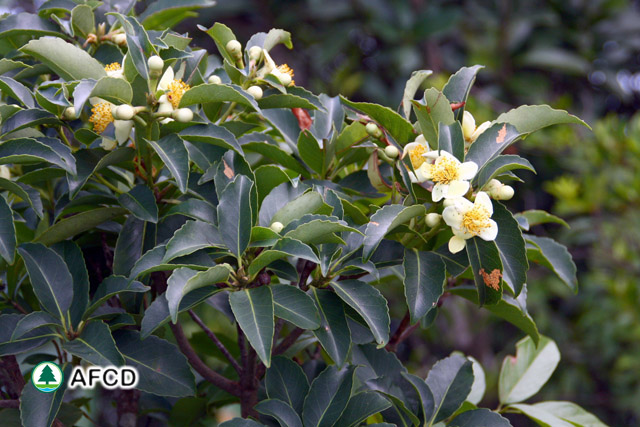Afforestation work in Country Parks
|
In the early stage of afforestation, the planting strategy was to grow a large quantity of trees to provide quick establishment of vegetation cover at barren hillsides. The aim was to improve the landscape of the countryside and to prevent soil erosion. Tree species with hardy and fast growing characteristics, including the local Chinese Red Pine (Pinus massoniana) and exotic species like Brisbane Box (Lophostemon confertus) and Taiwan Acacia (Acacia confusa), were selected and widely used. 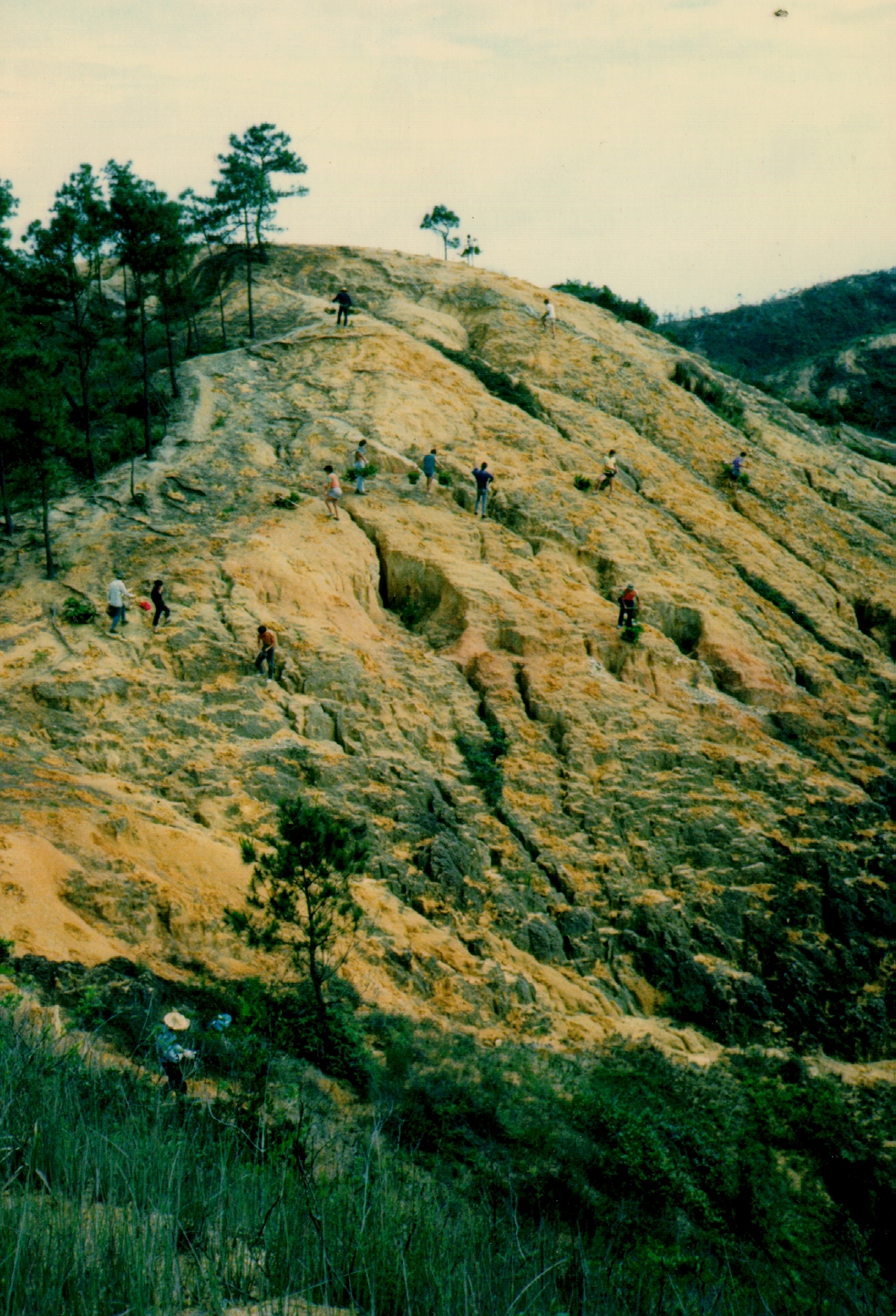 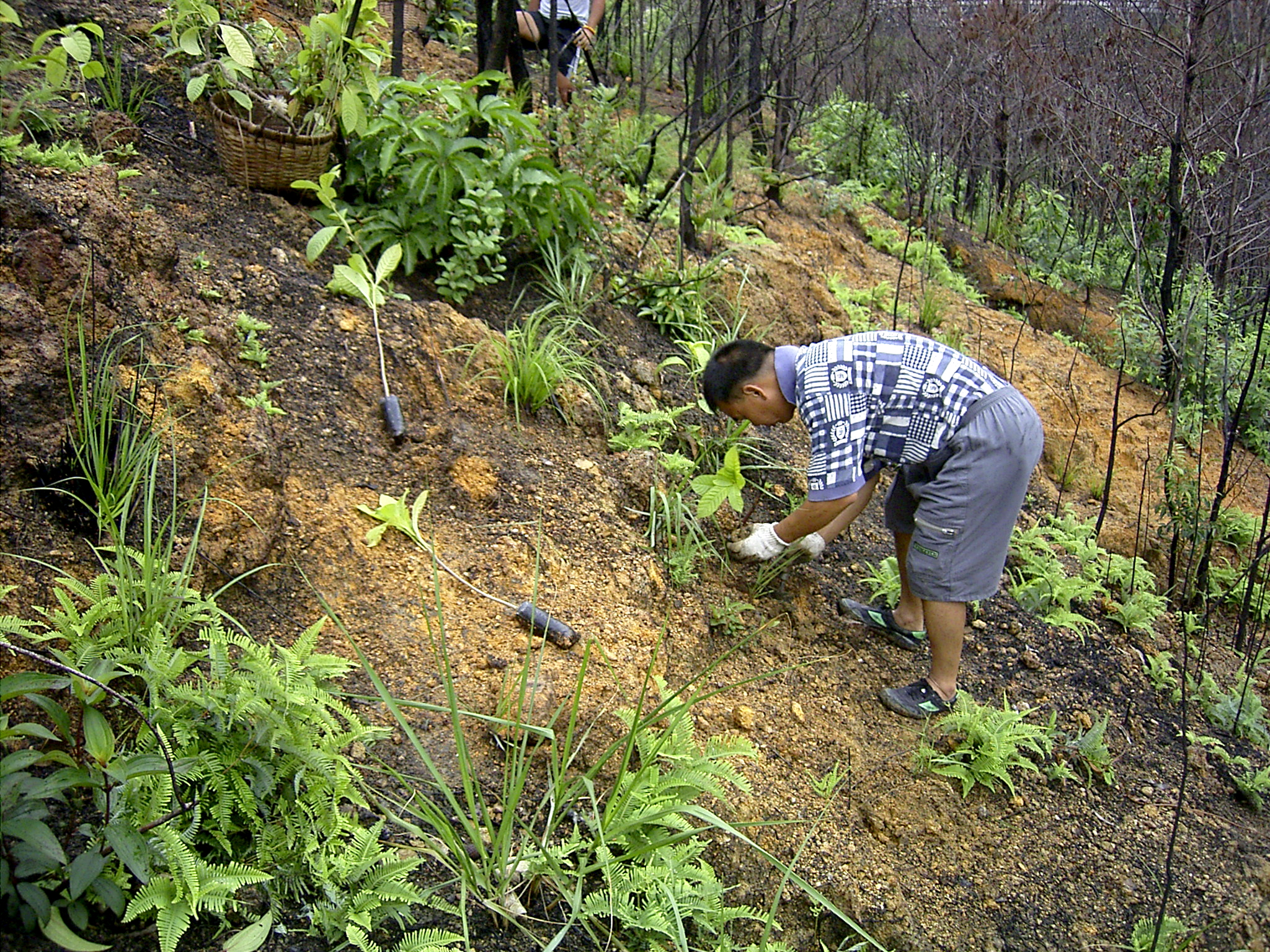 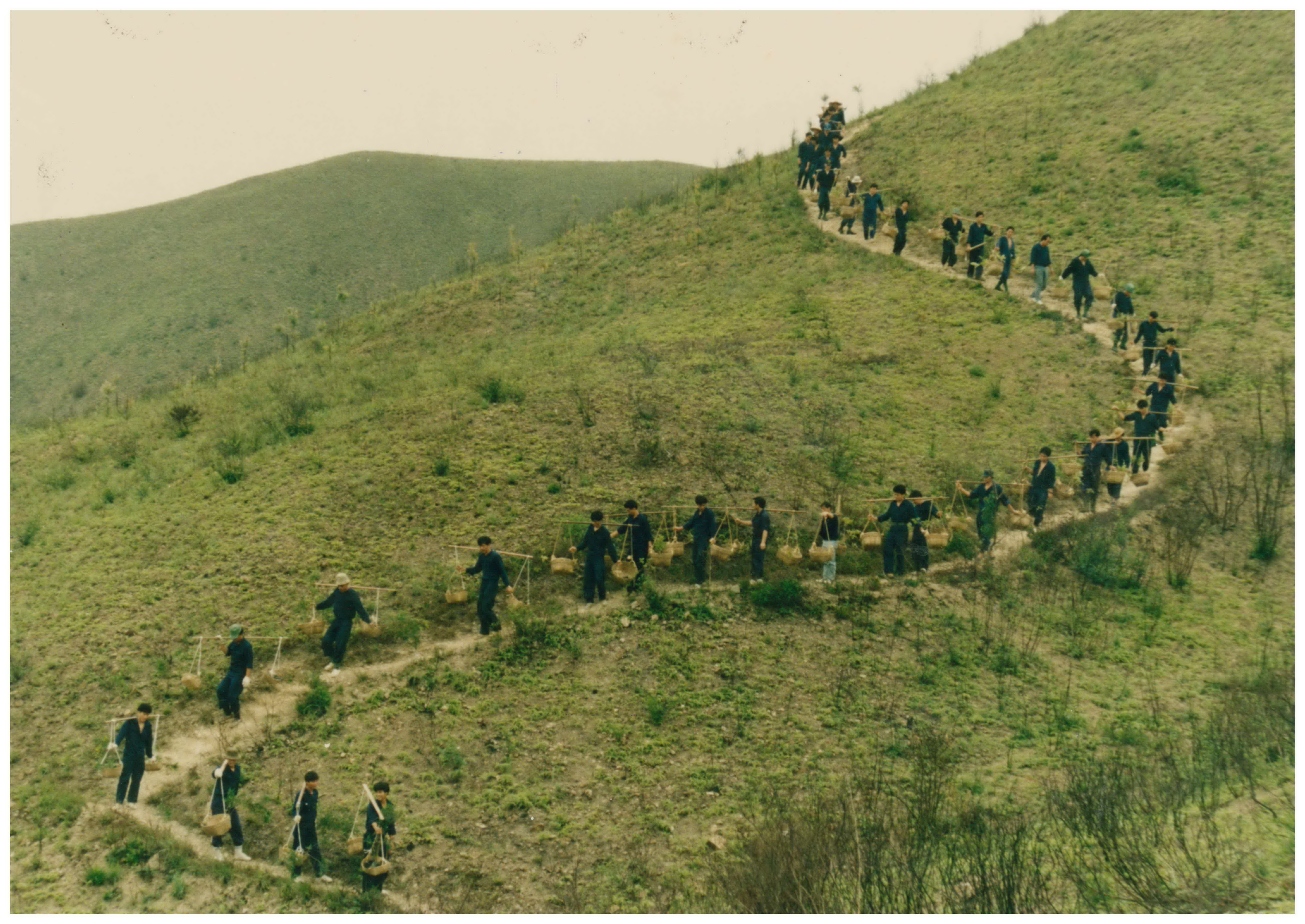 After decades of extensive tree planting, the forest coverage of Hong Kong has gradually increased. The afforestation strategy has been adjusted from soil erosion control to enhancement of ecological value and biodiversity of country parks. Native species offering fruits and nectar as food sources for local wildlife are thus used in increasing proportions. Currently, over 80% of tree seedlings planted in country parks are native species. Some successful examples of native species used for afforestation are Castanopsis (Castanopsis fissa), Hong Kong Gordonia (Polyspora axillaris), Machilus (Machilus spp.), Schima (Schima superba) and Sweet Gum (Liquidambar formosana), etc. ť Click here to learn more about the characteristics of major local tree species propagated by AFCD
ť ť ť ťCastanopsis (Castanopsis fissa)ť ť ť ť ť ť ť ť ť ť ť ť ť ť ť ť ť ť ť ť ť ťSchima (Schima superba) ť ť ť |
||
|
||
